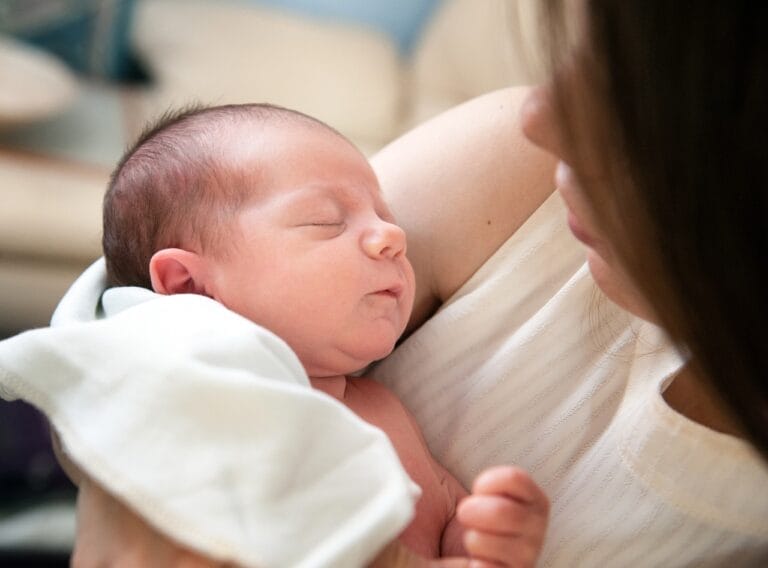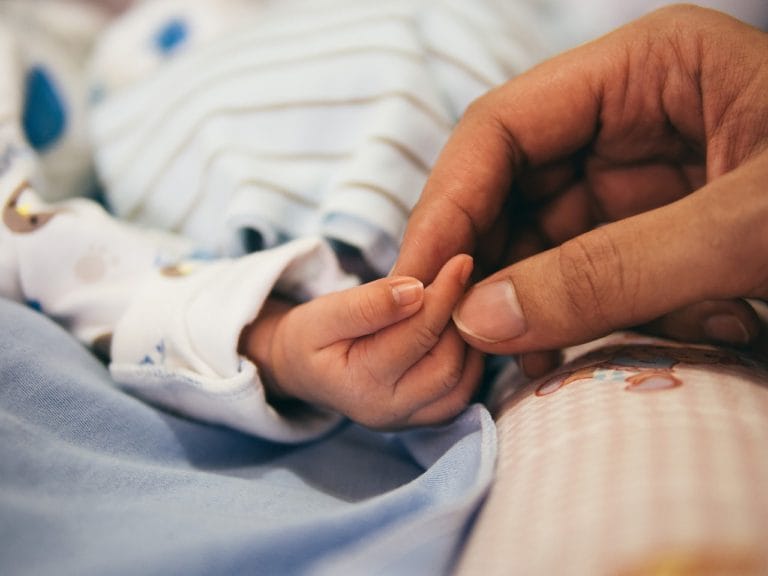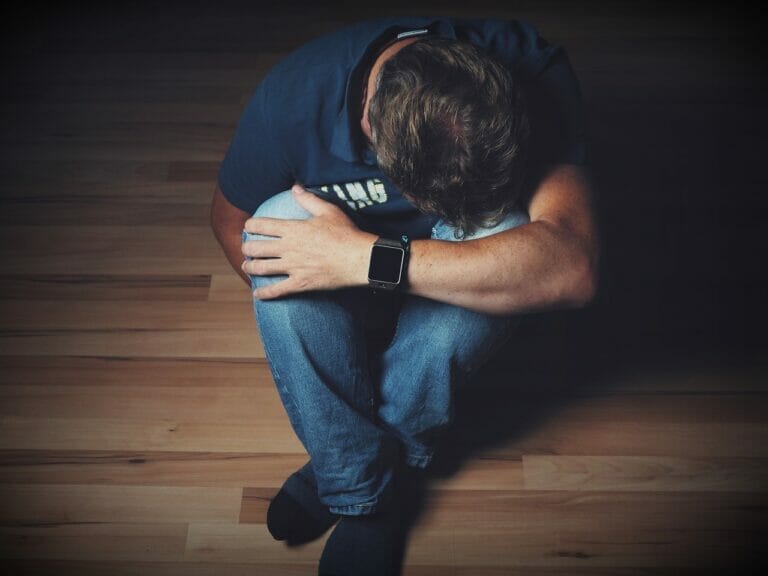When does postpartum depression end?
Depression following the birth of a child affects as many as one in five to seven new mothers. Depressed mood, difficulty experiencing joy or pleasure, sleep and appetite changes, and low energy can be signs of postpartum depression. When do these symptoms end? The answer is different for all mothers and depends on how you respond to your symptoms.

Initial tearfulness and rollercoaster emotions after the birth of a baby are generally considered baby blues. However, intensely negative thoughts, intrusive thoughts of low self worth, or sadness and low mood lasting more than four weeks are signs of postpartum depression. In a culture where many new moms are isolated from a community of mothers, postpartum depression can feel lonely and can go undetected. If you’re experiencing symptoms of postpartum depression, you may have googled your way here to find out when this feeling will go away.
I’ve never been like this…
For many new mothers, these symptoms come as a surprise. Perhaps you’ve been anxious or depressed in the past, but you never expected the birth of a baby to trigger these low feelings. Because our culture emphasizes the joys of new motherhood, new mothers can feel ashamed to ask for help or to ask when the symptoms will go away. Despite how common postpartum depression is, there just isn’t enough information available for new mothers to understand their experience. You can read more about postpartum depression here.
When will my postpartum depression go away?
Unfortunately, postpartum depression rarely just “goes away” without any treatment or intervention. In fact, untreated depression can become chronic or recurrent depression over time, affecting not only the mother but the mother’s relationship with her partner and children. Because many new moms will downplay symptoms or feel ashamed to admit to feeling down, postpartum depression is often missed by doctors. Adding to that complication, many doctors do not properly or thoroughly assess for postpartum depression.
What can I do to get better?
The first step to feeling better from postpartum depression is to talk to a trusted medical provider about what you are experiencing. Just discussing the issue can provide great relief. Do you have a pediatrician, obstetrician, doula, or lactation consultant that you feel comfortable sharing this with? If not, you may need to give yourself a pep talk, ask a supportive friend or family member for help, or reach out to a therapist on your own.
The recommended treatment for postpartum depression is mental health therapy. Finding a provider with specialized training or certification in perinatal / postpartum mental health is strongly recommended. At times, medication combined with therapy or medication after starting therapy will be recommended. However, if concerns about medication are preventing you from getting treatment, please know that you are not required to take medication to receive help for your postpartum depression.
Is there anything I can do besides therapy?
There are many steps you can take to help yourself recover from postpartum depression. While it’s strongly recommended you seek therapy, combining therapy with other interventions will help you recover faster. While it will be very difficult in the beginning, we strongly recommend you can consider some form of physical movement or exercise on a daily basis. This does not need to be a full gym workout. If all you can manage is a simple walk around the block, treat that walk as your medicine for postpartum depression. If at all possible in your climate and neighborhood, get some sunlight for 20-30 minutes per day. Sunlight is known to improve mood and sleep, as well as help baby regulate days and nights, hopefully sleeping better as well.
If you have no appetite, make it a priority to eat throughout the day. Often, loss of appetite means consuming less food, which means lower energy and deeper feelings of depression. Even if you don’t feel like eating, finding something small you can eat will often help increase energy levels and improve mood.
Additionally, consider joining a support group for mothers. Social isolation, lack of support, and identity changes all contribute to experiencing postpartum mood changes. You can find out about online support groups from Postpartum Support International or reach out to us for local recommendations. Additionally, Postpartum Support International offers a postpartum support help line and peer mentors.
How will postpartum depression therapy help me?
Postpartum therapy will help you understand your mood changes and validate your experience. You are truly not alone. With an expert therapist, you can start to build confidence in your abilities as a mother and let go of any guilt around your early parenting experience. For many new mothers, the intense and abrupt identity change of entering motherhood can be a contributing factor to depression. With postpartum depression therapy, you can develop your new identity with confidence. Your therapist can help you develop coping skills, a solid support system, and healthier beliefs about yourself.
Postpartum therapy can help you feel like yourself again and enjoy your baby’s first few months in the world. With a skilled postpartum therapist, you can feel the fog of depression lifting. Yes, reaching out can be awkward and difficult, but we’re here to help you feel comfortable. Babies are always welcome in our sessions! Call us today for a free 15 minute phone consultation. To learn more about Postpartum Therapy and how Skylands Wellness can help, click here.




